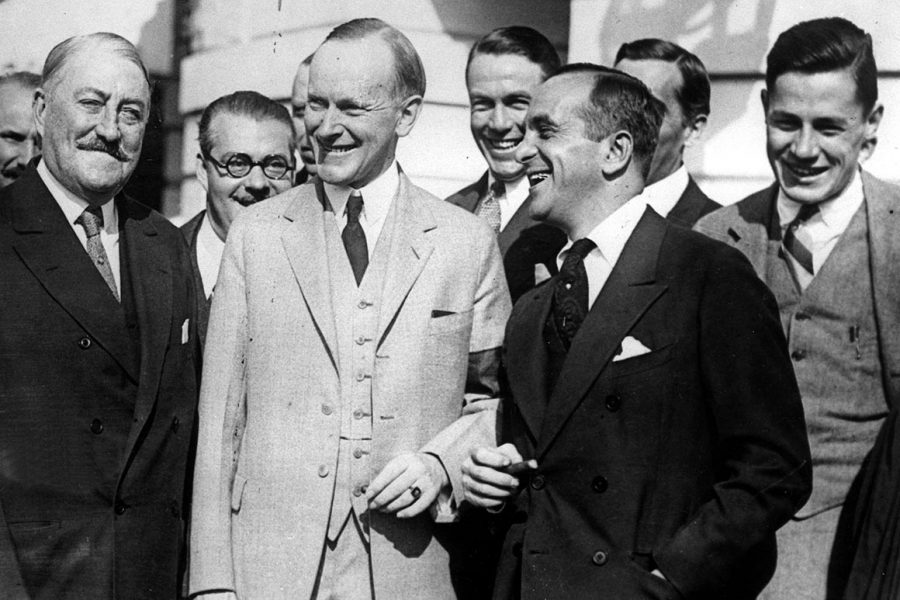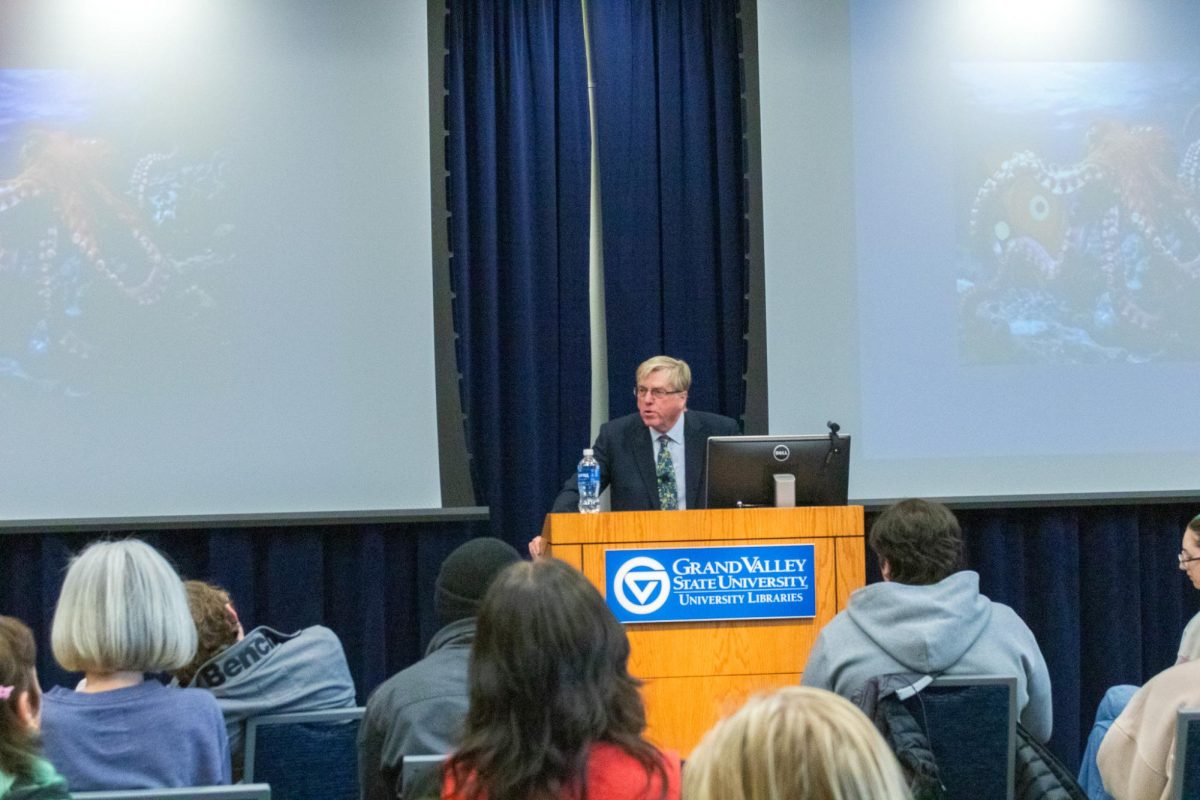Lakers for Liberty talk presidential history
Nov 16, 2020
On Nov. 10, the Lakers for Liberty (LFL) student organization hosted a virtual event about former president Calvin Coolidge. The discussion was led by Aravinda Karunaratne, a doctoral candidate from the Department of Public Administration and Policy at the University of Georgia, who sought to explore President Coolidge’s upbringing and personality in addition to his political career and approach to policymaking and governance.
LFL is a student-run organization that was founded in 2016 with the purpose of spreading the ideas of a free society on the GVSU campus. They have since gained two parent organizations, Students for Liberty and Young Americans for Liberty, but according to organization president Nevin Schuring, their purpose hasn’t changed.
“The original goal has remained the same,” Schuring said. “To promote the freedom to live your life in whichever manner you please as long, as it does not infringe on another person’s right to do the same.”
For this event in particular, the nationwide Students for Liberty organization invited Karunaratne to deliver a series of presentations across the country on the topic of Coolidge and his legacy, with GVSU as his fourth stop.
“My interest in exploring the Presidency of Calvin Coolidge emerged while I was undertaking a book project on Amity Shlaes’ Coolidge biography,” Karunaratne said. “Since then, I have been researching public leadership in general, and on Coolidge and his presidency in specific.”
His presentation, “Calvin Coolidge: The Person, The Politician, The President,” followed Coolidge through his presidency from 1923 to 1929. Rather than a strict history lesson, it was focused on how his upbringing impacted his value system and how he responded to the role of president.
“Calvin Coolidge was known to be someone who could address the silent majority,” said Karunaratne.
This was important in explaining his unique role as a president — he even had the nickname “Silent Cal,” though that was more in reference to his being a man of few words, with a popular joke in D.C. at the time being that he was “silent in five languages.” He was also a controversial figure, given that the Great Depression started just as he left office in 1929, which some say his passivity as president didn’t help avoid.
This was in counterpoint to his predecessor as president, Warren G. Harding, whose own self-serving approach to the office was only revealed to the public in a series of scandals after his unexpected death by cardiac arrest. In 1923, President Harding passed away, and Coolidge had to step up from his Vice President position to fulfill a role that he hadn’t been prepared for. According to Karunaratne, Coolidge brought dignity and integrity back to the office after it had been marred by a president who used it for his own gain.
“I believe that Coolidge can be a role model for every college student,” Karunaratne said. “Coolidge was not unusually bright, but he achieved much in life through sheer hard work. Most importantly, Coolidge was very humble, modest and understood the struggles of the common man.”
This presentation was one of many such discussions had by Lakers For Liberty. The community within their organization is one of discussion and learning, where members participate in new conversations every week. Schuring says that students who attend their weekly meeting usually leave with two things: “Having a better understanding of how public policy affects day to day life, along with having more friends than they did when they walked in.”
Lakers For Liberty seeks to explore non-partisan philosophy and the education of students to better society.
“If you enjoy freedom and liberty, you’ll enjoy us,” said Schuring.
To learn more about Lakers for Liberty, follow them on Facebook or check out their page on Laker Link.























